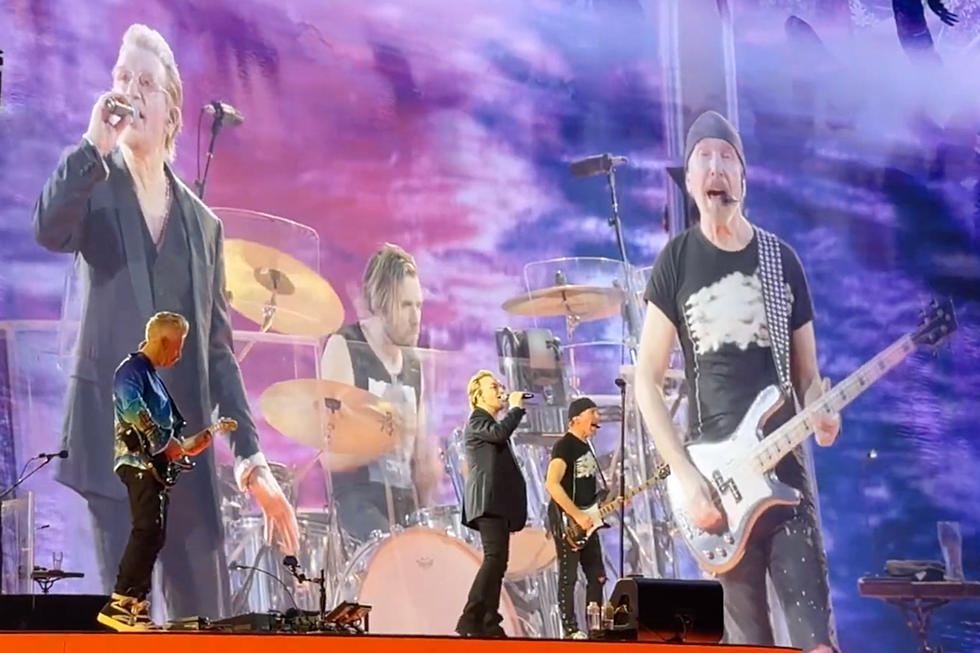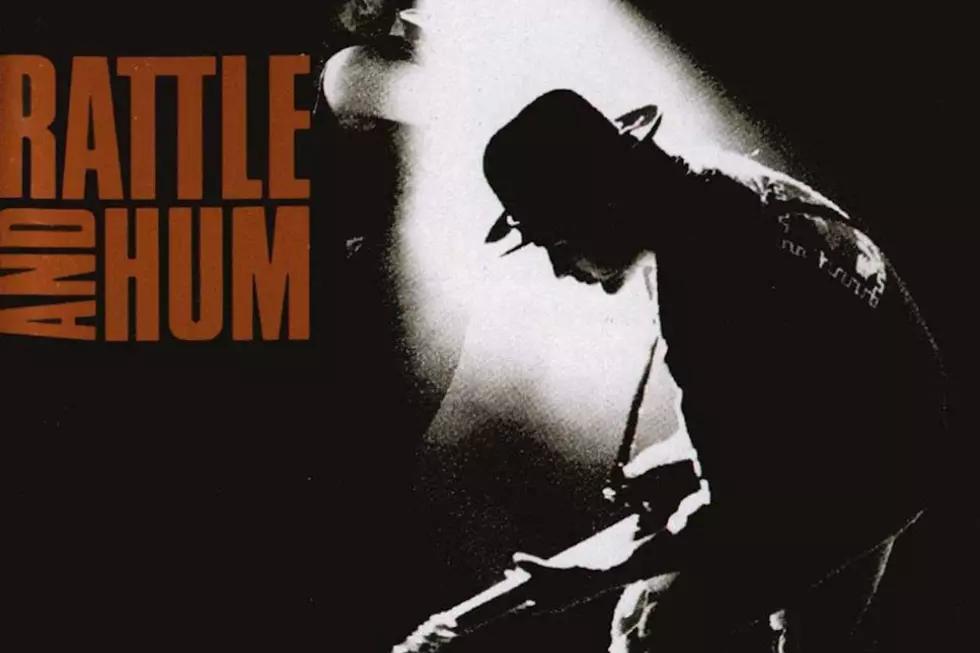
40 Years Ago: U2 Chart Difficult Route to Debut Release ‘Three’
When U2’s debut release, Three, arrived on Sept. 26, 1979, it marked the band’s third attempt at sounding convincing in the studio. And they were happy to admit they had to endure a difficult period to get there.
Sometimes referred to as U2 3, Three is also sometimes referred to as an EP or an extended single. It contained three tracks, with the order decided by listeners of an Irish radio station. It was originally launched by CBS in the band’s home country of Ireland only, in 12" vinyl format with a limited run of 1,000 copies.
“Out of Control” appeared on the A-side, with “Stories for Boys” and “Boy-Girl” on the flip side. The first two songs were re-recorded for the band’s 1980 debut album, Boy – but even so early in their career they were used to abandoning material in the pursuit of higher quality and value.
“We could do an album tomorrow,” singer Bono told radio presenter Dave Fanning in August 1979, when the fan poll was announced. “We’ve written 25 tracks, we play 14 of them. We’ve tracks written for the second album, which might sound very pompous.” He added that there was already plenty of material they’d “grown out of.”
U2 had made their studio debut in April 1978 after they won a talent contest with a recording session as the prize. CBS Records executive Jackie Hayden was one of the judges, and manned the desk for the band.
“It was our first time in the studio and I think his first time as producer,” bassist Adam Clayton recalled later. “He told us to set up as we would for a live show and play the set. It was all done in two-track. He thought that was a good way to do a demo. Then he took the tapes off to London to try to talk them into signing us, and they just laughed. The tapes were awful. We didn’t know at the time … we had nothing to compare them with.”
Song titles included “Hang Up,” “Street Missions,” “Concentration Cramp,” “Inside Out,” “Born in the Back Streets,” “Night Flight” and “Neon Heart.” While some of those were mainstays in the rising-star group’s concert sets, they didn’t have long to live. In 1979, Bono defending their songwriting position by criticizing the New Wave movement of the time. “They’re writing about things that they don’t really know about," he said. "They maybe remember, but we’re at the age where it’s happening.”
In November 1978, U2 returned to the studio, this time with Horslips’ Barry Devlin as producer. “Street Missions” still survived at this point; “Shadows and Tall Trees” made its first appearance and also made it on their debut album, Boy. Also tracked was “The Fool,” a song based on one of Bono’s earliest alter egos.
A third studio session took place in February 1979, with “False Profit” (which contained a reference to Bono’s hero Marc Bolan), “Twilight,” “Johnny Swallow,” “Another Time, Another Place” and “Alone in the Light” laid down.
Listen to U2's ‘Three’
With those educational experiences behind them, Bono sounded confident as he discussed Three, the result of their fourth studio venture. Asked what he’d do when he got his own copy, he said, “I’m going to keep it. I’m going to stick it on my wall, that’s all I’m going to do.”
He was aware of its function as a demo to the world beyond Ireland. “If there’s anyone out there who wants to spend an awful lot of money to have the talents of the band U2 on record, well then, they’ll offer us a certain amount of money," he noted. "Let’s hope we’ll be very happy and they’ll be very happy and they’ll all be rich.”
He added that the "demo now signifies a U2 that has matured. I’m not going to disguise the fact that we had problems at the outset, at the embryonic stage of the band. We grew up like any band. We didn’t try and hide our songwriting difficulties – we went out and we played, right, and whatever people thought of us, now we’ve gone through it, we’ve overcome our mistakes, we’re ready. I think that demo shows that.”
Expressing their global intentions, he asserted that "it’s a big industry, people try to stand on us. … Rather than pretending it’s not there … we’d like to join that race, we’d like to beat the people involved, make use of it rather than go totally against it.” Explaining they’d already rallied against pressure to perform cover versions rather than their own material, he said, “There’s people in those towns who want to hear what you have to say. … There’s a population reacting against this.”
Despite being a limited-edition release, Three reached a respectable No.19 in the Irish charts. But there were more hurdles to overcome as U2 moved from Ireland to the British mainland in search of a record deal: a proposed contract collapsed, guitarist the Edge injured his hand, they were incorrectly billed as “V2” and a stack of other issues that won’t be news to any band aspiring to the big time. But they had a lot on their side too.
“They’d been playing together for a long time, and they weren’t all great players by any stretch of the imagination,” A&R exec Annie Roseberry told Uncut in 2014. “The timing was pretty appalling, but it didn’t matter. They just had something unique.” She added that Bono "always had a cockiness, a cheekiness that was really appealing. I don’t think he’s ever really been a sex symbol, but there is just a presence, a magnetism.”
In 2012, as the band began work on the album Songs of Innocence – which was based on its youthful experiences in Ireland – Bono noted, “There won't be a U2 album unless there's something really special. You just gotta go to that place. You gotta dig a deep well and see what you can pull up. We've been through many songs, and there's some great stuff. I would say we had the best three weeks in the studio that we've had since, like, 1979."
U2 Albums Ranked
More From Ultimate Classic Rock









